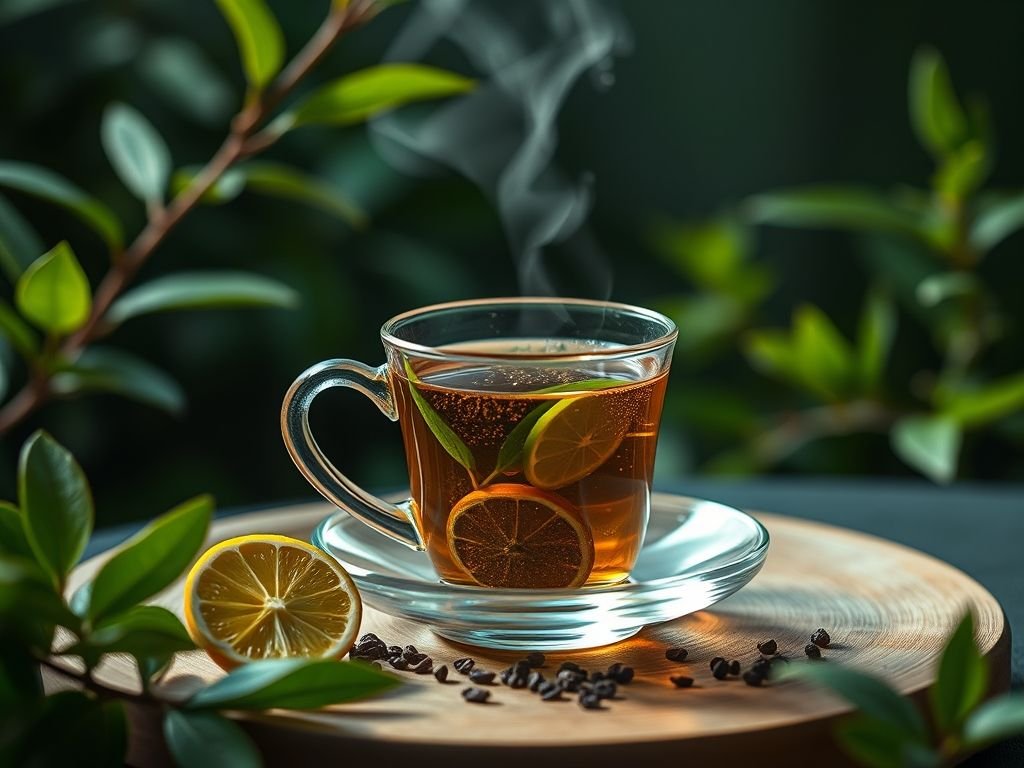Understanding the Benefits of Tea for Skin
Tea for skin refers to various types of teas that are used to enhance skin health and appearance. These teas are rich in antioxidants, vitamins, and minerals that can provide numerous benefits for the skin. From soothing inflammation to improving hydration, tea can be a natural ally in achieving a radiant complexion.
Types of Tea and Their Skin Benefits
Different types of tea offer unique properties that can contribute to skin health. Here’s a closer look at some popular teas used for skincare:
- Green Tea: Rich in polyphenols, green tea has anti-inflammatory and antioxidant properties, making it effective in reducing acne and signs of aging.
- Chamomile Tea: Known for its calming effects, chamomile can help soothe irritated skin and reduce redness.
- Rooibos Tea: Packed with antioxidants and alpha hydroxy acids, rooibos can help improve skin elasticity and combat wrinkles.
- White Tea: With its delicate flavor, white tea contains high levels of antioxidants that can protect the skin from damage caused by UV radiation.
How to Use Tea for Skin Health
Incorporating tea into your skincare routine can be done in several ways. Here are some practical applications:
1. Tea Infusions
Make a tea infusion by steeping your chosen tea in hot water. Once cooled, use the infusion as a facial toner. This can help tighten pores and refresh the skin.
2. Tea-Infused Face Masks
Create a DIY face mask by mixing brewed tea with natural ingredients like honey or yogurt. Apply it for 15-20 minutes to hydrate and rejuvenate your skin.
3. Herbal Tea Baths
Add bags of chamomile or green tea to your bath for a relaxing soak that soothes the skin and promotes overall well-being.
4. Topical Applications
Use cooled tea bags (especially green or chamomile) as compresses for puffy eyes or irritated skin. Simply place the bags on the affected area for a few minutes.
Potential Side Effects and Considerations
While tea for skin can be beneficial, it’s essential to consider potential side effects:
- Allergic reactions: Some individuals may be sensitive to specific teas. Always perform a patch test before applying new ingredients to your skin.
- Caffeine sensitivity: If you are sensitive to caffeine, opt for herbal teas, which are naturally caffeine-free.
- Staining: Certain teas can stain the skin or fabric. Be cautious when using darker teas.
To fully appreciate the benefits of tea for skin, it’s helpful to understand related concepts:
- Antioxidants: Substances that protect cells from damage caused by free radicals, found abundantly in various teas.
- Hydration: Maintaining skin hydration is crucial for a healthy complexion. Drinking tea can contribute to overall hydration levels.
- Natural Remedies: The use of plants for health benefits, encompassing various herbal medicines and treatments.
Conclusion: Embracing Tea for Skin Health
Incorporating tea into your skincare routine not only enhances your skin health but also promotes relaxation and well-being. Experiment with different types of tea to find what works best for your skin, and consider integrating tea-based remedies into your daily routine. Remember, the key to beautiful skin lies in both internal and external care. So, brew some tea today and enjoy its many benefits!
Call to Action: Have you tried using tea for your skin? Share your experiences and favorite teas in the comments below!

